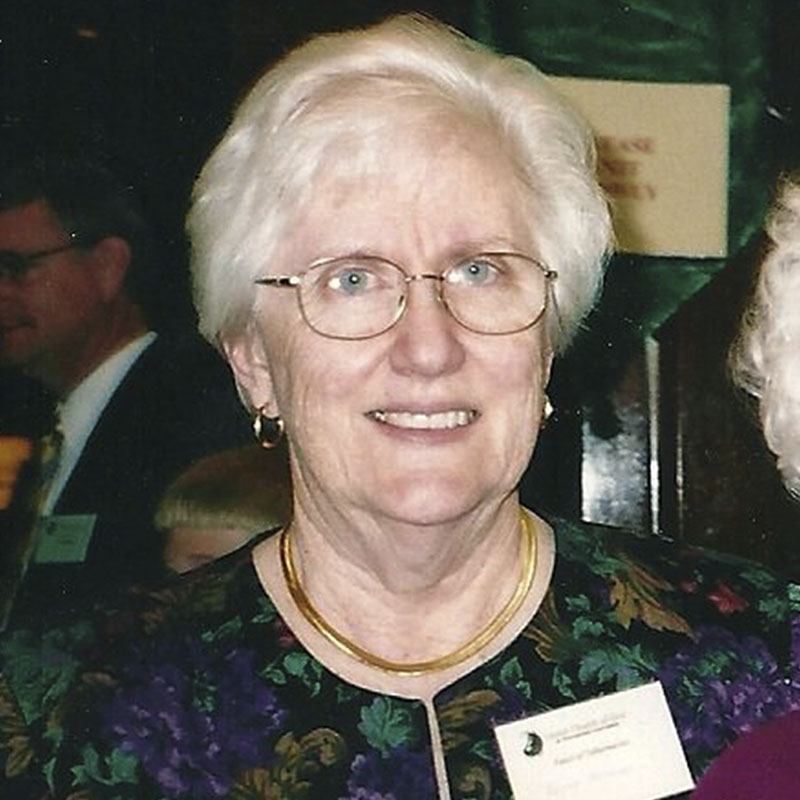As parents, we have the responsibility to teach our children. But could we be missing valuable lessons they could teach us about becoming like little children?

There is a proper order of things. I strongly believe it is proper for parents to teach their children to become responsible, successful adults.
But could it be that children are also teachers?
Looking back, I find it’s often the actions of children that have given me life lessons not found in books. Jesus even said we should “become as little children” (Matthew 18:3) and that “of such is the kingdom of heaven” (19:14).
Let me share five meaningful incidents that have touched my heart and mind and encouraged me to want to become more like little childen.
1. Belief like little children
One of my fondest memories is of a five-gallon bucket, some red Oklahoma dirt, a garden hose and the industry of two of our young children. It was a hot summer morning, and these two had plans afoot. A quick breakfast and they were out the back door, heading straight for the old garage.
Our son took a small shovel, handed the bucket to his sister, and together they headed for their granddad’s garden. With dogged determination, they finally managed to fill the bucket halfway with dirt, and then they moved on to the next stop—the garden hose. With a quick turn of the faucet handle, a stream of water softened the clods of clay, and before long they had a thick, goopy mix to their liking.
My curiosity piqued, I asked what they were doing. Their answer? They were trying to make a man—his name was Muddy.
We had recently read the story of Adam’s creation, and they were enthusiastically trying to replicate the event. Try as they might, though, Muddy remained in his lifeless, amorphous state.
Lesson: There was no question in their young minds. They believed what the Bible said. What they soon learned is that some things only God can do.
What I learned is that understanding who God is can begin early in life and in small ways, but it only matures through the lessons of experience and exposure.
2. Generosity like little children
A few years ago one of our granddaughters was planning for one of our special church services. An offering would be taken up, and she wanted to participate. First, she carefully printed a letter to God, ending with “I love you.” Then she folded it carefully, put it in her special envelope, and tucked it away for later when she would include a dollar bill.
The day finally arrived, and the family was en route to church services when suddenly our granddaughter burst into tears. She had forgotten to put the money in her
precious envelope! Her mother tried to calm her distress, mentioning that she didn’t have a dollar bill, but she had something just as good—four quarters.
The tears flowed even harder as our granddaughter told her mother it had to be a dollar bill. Evidently in her young mind, God preferred paper over coins, and she would have it no other way.
As soon as they arrived, our daughter-in-law found someone willing to exchange a dollar bill for the quarters, averting the pending crisis. Our granddaughter happily placed her offering to God along with her love letter in the offering basket, and I can only think that God smiled that day.
Lesson: This experience reinforced in my mind that giving offerings to God is not a haphazard activity. It takes planning and purpose—and it must be from the heart.
3. Childlike faith
Prayer and Mrs. J. just seem to go together. It’s not out of the ordinary for her to get a prayer request from any of her grown children, her grown grandchildren or now any of her great-grandchildren.
Not so long ago she received a call from a granddaughter who had lost something precious—the center diamond of her engagement ring. She and her daughter Alex had looked for several days, using a flashlight, peering into and under and around everything in their home, and it was nowhere to be found. Would Mrs. J. please pray? Of course she would.
Nothing is too small—nor is anyone too young or old—to get God’s attention.
The next day 5-year-old Alex came to her great-grandmother’s home for a visit, and she told Mrs. J. how upset her mother was and how desperately she wanted to find that lost gem. “Would you pray that Momma could find her diamond, Meme?” she asked seriously.
Mrs. J. pulled her up into her lap; they bowed their heads and prayed what she called a “simple” prayer.
About a day later, Mrs. J. answered the phone and heard the words she had been expecting: “Grandma, we found the diamond!” Mrs. J. replied, “Of course you did. God is building faith in your little daughter.”
Mrs. J. later told me that God had to have answered that prayer, because the diamond was found about an inch from the shower drain in the bathroom. It could have been washed away at any time and no one would have been the wiser. Instead God heard and, at just the right time, answered the simple prayer of a little girl and her great-grandmother.
Lesson: Faith cannot only move mountains, the faith of a little girl and her great-grandmother can lead to the recovery of lost things. Nothing is too small—nor is anyone too young or old—to get God’s attention.

4. Optimism like little children
In the early 1950s the United States was in the throes of an outbreak of a dreaded, incurable disease—poliomyelitis. During the worst year of the epidemic, 3,000 people died and thousands more were crippled—many of them children.
By the time I met Linda, a pretty, young girl with lovely blue eyes, she was in an iron lung, the airtight metal tank designed to force the lungs of polio victims to inhale and exhale through regulated changes in air pressure. She could only talk when the apparatus forced her to exhale, so our conversation was dictated by its rhythm. I was a young volunteer at a hospital (they called us “candy stripers”), and one of my assignments was to visit the pediatric ward, and Linda in particular, on a regular basis.
Linda could be pulled out of her breathing contraption for a certain amount of time each day, and that was when we would do most of our conversing. Sometimes we would talk about other kids in the ward, and sometimes we would talk more personally.
One time she confided in me that when she got better, she was going to be a ballet dancer. Her eyes twinkled with excitement as she explained just what she was going to do. The fact of the matter was that there was only one part of her body she could still move voluntarily—a pinkie finger. The rest was completely paralyzed.
Lesson: When I think of Linda, I feel that even the darkest of days can be brightened by the rays of optimism and hope. And I also pray fervently for the day God’s Kingdom will come and such terrible diseases will be healed (Isaiah 35:5-6).
5. Humble like little children
It was only normal that the disciples associated Jesus with power. After all, think of the miracles they had witnessed—the instantaneous healing of the sick, demons cast out, mastery over nature in calming a storm and more. Even they themselves were commissioned by Him to perform similar actions (Matthew 10).
Everything associated with their Master seemed to signal rule and control over any kind of adversity through countless miracles. Ultimately they anticipated His ushering in the prophesied Kingdom of God with authority and might, with themselves at His side.
What they failed to discern was Jesus’s true motivation—His desire to serve mankind, not to be served (Mark 10:45). It’s not surprising, then, that the disciples eventually found themselves embroiled in heated speculation involving power—about who would be the greatest in the kingdom of heaven (Matthew 18:1). It was time for an object lesson.
“Then Jesus called a little child to Him, set him in the midst of them, and said, ‘Assuredly, I say to you, unless you are converted and become as little children, you will by no means enter the kingdom of heaven. Therefore whoever humbles himself as this little child is the greatest in the kingdom of heaven. Whoever receives one little child like this in My name receives Me’” (verses 2-5).
Imagine what must have gone through the minds of men like James and John (the “Sons of Thunder,” Mark 3:17), Peter and, yes, even Judas—all men of strong will, zeal and action—as they heard these words.
What could be said of a little child? He had no status. She had no power. A little child had no pride, ambition or guile. Indeed, all a child could do is learn, trust and submit, which, of course, was exactly Jesus’ point.
What a teaching moment that must have been!
Lesson: Learning to have a childlike humility toward God is the ultimate lesson, and it will take a lifetime to master.
“Then little children were brought to Him that He might put His hands on them and pray, but the disciples rebuked them. But Jesus said, ‘Let the little children come to Me, and do not forbid them; for of such is the kingdom of heaven’” (Mark 10:13-16; Luke 18:15-17).
To learn more about what it means to be children of God, see the article “Children of God.”





